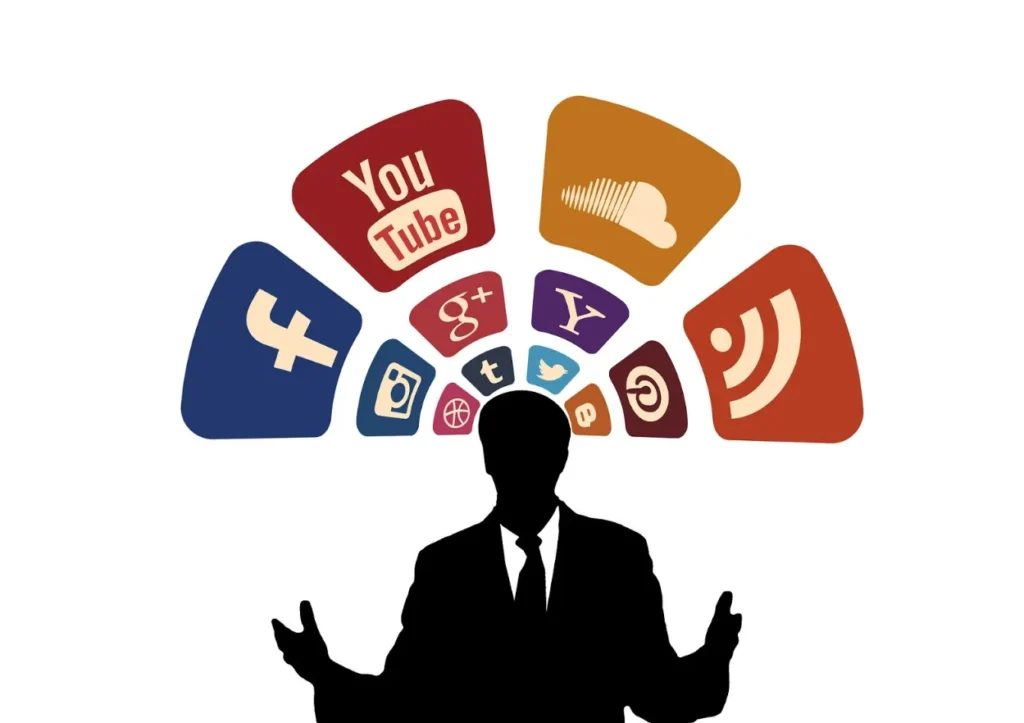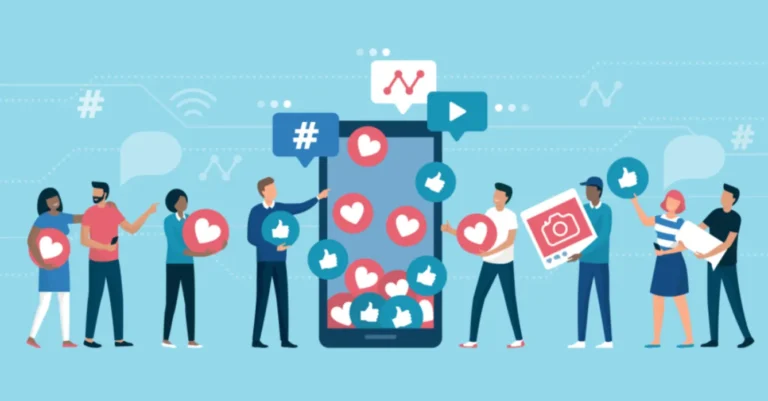Some users no longer identify themselves on social media to protect their privacy and mental well-being. This trend reflects growing concerns over data security and online interactions.
In recent years, more individuals have chosen anonymity on social media platforms. Privacy concerns and mental health awareness drive this change. Users fear data breaches and cyberbullying. Anonymity can offer a safer online experience, and people feel less pressure to conform to social norms.
They can express themselves more freely. This shift impacts social media dynamics significantly. Platforms may adapt to support anonymous interactions better. Understanding this trend is crucial for both users and social media companies. It highlights the evolving relationship between digital identity and personal well-being. As technology advances, the importance of user privacy will continue to grow.
Digital Identity Crisis
The digital world is rapidly changing. Social media platforms create virtual identities, which can sometimes clash with reality. This phenomenon is known as the Digital Identity Crisis, and it affects how we view ourselves.
Emergence Of New Challenges
New challenges are emerging with the rise of digital identities. Privacy concerns are growing. Users worry about data breaches. Cyberbullying is another serious issue. It affects mental health. Online personas often differ from real-life behavior.
- Privacy concerns
- Cyberbullying
- Online personas
These challenges impact our daily lives, creating stress and anxiety. People struggle to manage their online presence, even though they want to maintain a positive image.
Impact On Personal Identity
The digital identity crisis affects personal identity. Self-esteem can suffer. People compare themselves to others online, and this comparison is often unfair. Social validation becomes crucial. Likes and shares impact self-worth.
| Aspect | Impact |
| Self-esteem | Can decrease |
| Social validation | Becomes Crucial |
| Online vs. Real-life persona | May differ |
Balancing online and real-life identities can be challenging. People may feel disconnected or even experience identity confusion. However, it’s essential to find a healthy balance.
Rise Of Anonymity
The digital world is changing fast. Anonymity on social media is becoming more popular. People now prefer not to reveal their identities online, creating new trends and behaviors.
Increasing Trends
More users are choosing anonymous profiles. Social media platforms support this trend by adding features for anonymity. Users feel safer sharing their thoughts this way.
Platforms like Reddit and 4chan have always had anonymous options. Now, even Facebook and Instagram are exploring anonymous features. This trend helps users avoid judgment and bias.
Influence On User Behavior
Anonymous profiles change how people behave online. Users feel free to express themselves without fear. This can lead to more honest conversations.
Yet, it can also cause negative effects. Some users might misuse anonymity to spread hate. Online communities need to find a balance.
| Positive Effects | Negative Effects |
| Free Expression | Cyberbullying |
| Honest Opinions | Spread of Misinformation |
| Safe Space | Privacy Issues |
Users and platforms must collaborate and promote the positive use of anonymity, which will ensure a safe and supportive online environment.
Social Media Platforms
Social media platforms are a central part of our digital lives. They connect people, share information, and build communities. But recently, they have faced scrutiny over privacy issues. Users are becoming more concerned about their data. This has led to the “No Longer Identify on Social Media. trend”
Response To The Crisis
Platforms have been quick to respond to the privacy crisis. They aim to restore user trust. Here are some steps they have taken:
- Enhanced Privacy Settings: Users now have more control over their data.
- Transparency Reports: Platforms publish regular reports on data use.
- Data Encryption: Messages and posts are now encrypted for safety.
Policy Changes
Social media platforms have also updated their policies. These changes are aimed at better protecting user identities:
- Stricter Verification Processes: New accounts undergo detailed verification.
- Anonymous Browsing Options: Users can browse without logging in.
- Data Minimization: Platforms collect only necessary data.
| Platform | New Policy |
| Stricter account verification | |
| Anonymous Browsing | |
| Data minimization |
User Perspectives
Social media has changed how we connect, share, and express ourselves. Yet, many users now prefer anonymity, which impacts online interactions. Understanding user perspectives on this trend offers valuable insights. Here, we explore personal stories and motivations behind anonymity.
Personal Stories
Many users share unique stories about their choice for anonymity. Jane, a 25-year-old artist, felt judged on social media. She feared sharing her true self and faced constant scrutiny. Anonymity allowed her to express herself freely without fear of judgment.
Mark, a software developer, faced online harassment. He decided to go anonymous to protect his mental health. For him, anonymity meant peace and safety in online interactions.
| User | Reason for Anonymity |
| Jane | Fear of judgment |
| Mark | Online harassment |
Motivations Behind Anonymity
Several motivations drive users towards anonymity on social media. Understanding these can help us appreciate their choices.
- Privacy: Many seek to protect their personal information.
- Safety: Some aim to avoid cyberbullying and harassment.
- Freedom: Anonymity allows free expression without repercussions.
- Experimentation: Users can try new identities or ideas safely.
Users are highly concerned about privacy and prefer to keep personal details secure. Safety concerns also play a significant role. Cyberbullying and online harassment are real threats.
For others, anonymity offers a sense of freedom. They feel liberated to express thoughts without fear, and experimentation with new ideas or identities becomes possible.

Psychological Impact
Choosing to no longer identify on social media can have significant psychological effects. The decision impacts mental health and personal identity. These changes can be both positive and negative.
Mental Health Concerns
Social media can create anxiety. Constant updates and notifications overwhelm users. This leads to stress and burnout. Stepping back from social media reduces this pressure.
Many users experience anxiety relief when disconnecting. They find peace and calmness. Less time online means fewer comparisons with others. This lowers feelings of inadequacy.
| Before | After |
| High Anxiety | Lower anxiety |
| Constant stress | More relaxed |
| Frequent comparisons | Better self-esteem |
Identity Confusion
Social media shapes our identity and influences how we see ourselves. Leaving social media can cause identity confusion, and users might struggle to define who they are without online validation.
Without social media, people may explore new aspects of their identity. They may develop hobbies and interests offline. This could lead to a more authentic self.
- Exploring new hobbies
- Building offline relationships
- Discovering true passions
Identity confusion can be challenging. It is also an opportunity for personal growth. Embracing this phase can lead to a stronger sense of self.
Cultural Shifts
The phenomenon of ‘No Longer Identify on Social Media’ highlights cultural shifts. These shifts reflect changes in how people view their online identities. Social media norms and generational behaviors are evolving rapidly.
Changing Social Norms
Social media once symbolized connection and community. Today, many users feel overwhelmed by its demands. People seek authenticity over curated personas. They crave genuine interactions, not just likes and shares.
Privacy concerns also play a significant role. Users are more aware of data misuse and breaches, and protecting personal information has become a priority. This shift influences how people present themselves online.
The rise of mental health awareness impacts social media use. Users recognize the negative effects of constant comparisons. Many choose to step back for their well-being, signaling a shift in social norms.
Generational Differences
Generations approach social media differently. Each age group has unique preferences and behaviors.
| Generation | Social Media Behavior |
| Baby Boomers | I prefer Facebook to keep in touch with family. |
| Generation X | Value professional networks like LinkedIn. |
| Millennials | Engage with visual platforms like Instagram. |
| Generation Z | Favor ephemeral content on Snapchat and TikTok. |
Generation Z often leads the charge in changing social norms. They prioritize authenticity and mental health. They are quick to abandon platforms that feel toxic.
Older generations are more cautious. They value privacy and meaningful interactions. These differences shape the evolving social media landscape.
Technological Solutions
Technological solutions are revolutionizing how we protect our identities on social media. Various tools and future innovations offer robust protection against identity theft and privacy breaches.
Tools For Identity Protection
Several tools can help safeguard your identity online. Here are some of the most effective ones:
- Two-Factor Authentication (2FA): Adds an extra layer of security by requiring two forms of identification.
- Virtual Private Networks (VPNs): Encrypts your internet connection to protect your data.
- Identity Theft Protection Services: Monitors your personal information and alerts you to suspicious activity.
Future Innovations
The future holds exciting innovations for identity protection. These advancements promise to enhance our online security:
- Biometric Authentication: Uses facial recognition or fingerprints to verify identity.
- Blockchain Technology: Provides a decentralized system for secure data storage.
- AI and Machine Learning: Detects and prevents identity theft through advanced algorithms.
| Tool | Function |
| Two-Factor Authentication | Extra security with two IDs |
| VPNs | Encrypts internet connection |
| Identity Theft Protection Services | Monitors personal information |
| Biometric Authentication | Uses facial recognition or fingerprints |
| Blockchain Technology | Secure data storage |
| AI and Machine Learning | Advanced theft detection |
Ethical Considerations
Understanding the ethical considerations of not identifying on social media is crucial. This section will delve into key aspects that impact both individuals and society. We will explore privacy vs. transparency and the moral implications involved.
Privacy Vs. Transparency
The balance between privacy and transparency is delicate. People value their personal space and seek accountability from public figures. Not identifying themselves on social media can protect individuals’ privacy, yet it may reduce transparency.
Let’s consider the following points:
- Privacy: Safeguards personal information.
- Transparency: Ensures accountability.
- Anonymity: This can lead to misuse of platforms.
The table below highlights key differences:
| Aspect | Privacy | Transparency |
| Protection | High | Low |
| Accountability | Low | High |
| Misuse Risk | Medium | Low |
Moral Implications
Refusing to identify on social media carries moral weight. This affects trust and authenticity. Let’s discuss some moral implications:
- Trust: Anonymous accounts may spread false information.
- Authenticity: Real identities foster genuine interactions.
- Safety: Anonymity can protect vulnerable individuals.
Balancing these moral aspects is crucial. It ensures the ethical use of social media. Users must consider the impact of their online presence on society.
Conclusion
Deciding to no longer identify on social media can bring peace and privacy. It allows for a more authentic life offline. Stay true to yourself and make choices that prioritize your well-being. Remember, your identity is yours to define, both online and off.
Also Read About: At the incident scene, who handles media inquiries?
